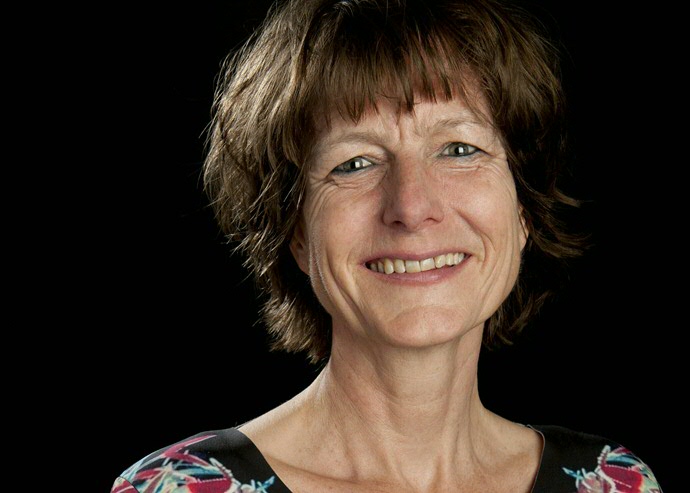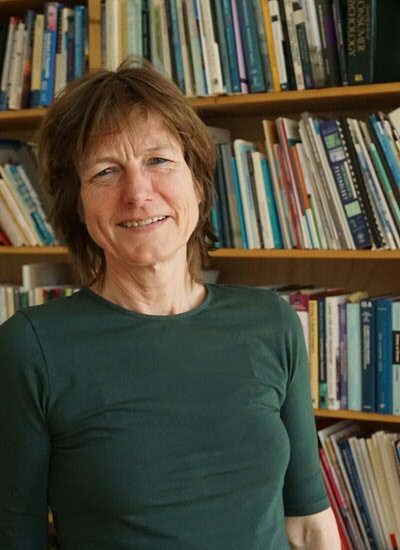Doing nothing against climate change also has consequences

Do you cycle or take the train instead of going by car, or do you recycle much? If so, this means that you are being environmentally friendly, and it should be emphasized more. This was pointed out by Linda Steg, environmental psychologist at the UG. Steg studies people’s motivations for displaying sustainable behaviour. ‘If you give people the sense that their behaviour is sustainable, it becomes part of their identity and they will become more sustainable in other areas, too.’
As part of her andragogy studies, Linda Steg took a course unit in environmental psychology. She enjoyed it so much that she asked her lecturer, Charles Vlek, if it was possible for her to explore the topic further. It was indeed possible; she soon started a placement at the Traffic Research Centre. Her PhD research at the UG linked closely with this: what motivates people to drive, and what prevents them from driving? The most important lesson that she learned during her PhD research was that you should have a broad perspective. Not many psychologists had been involved with this topic because it is not just a psychological issue. She therefore had to read widely to gain an understanding of this issue. ‘I think that as early as then, my interest in interdisciplinary research was triggered.’ Steg is now internationally recognized as one of the most prominent and undisputed experts in her field and has been appointed Knight of the Order of the Netherlands Lion.
Why are people sustainable?
There are many reasons for being sustainable. It was thought for a long time that low prices would automatically make sustainability attractive. Steg explains that this is not the case. ‘People would only be sustainable because it was cheap, and only for as long as it remained cheap.’ If the price were to change, people would just as easily revert to unsustainable behaviour. Therefore, the link between behaviour and sustainability must be made to continue to motivate people, so that people will show the behaviour because they want to do something good for the environment or for others, even if the price were to increase or be slightly higher.
It is not just the price, but also moral considerations that make people more sustainable. For example, we think that it is important to protect the environment. In addition, we let ourselves be guided by social considerations: what others expect from us or what others do with regard to sustainability also plays a role in our own choices. Emotions also affect our behaviour: doing something that benefits the environment can make you feel good, and that can also be a reason for sustainable behaviour. ‘It would not just be wearisome, expensive and a disaster if society were to become more sustainable.’

Doing nothing has consequences
We do have a right to honest information about climate change, according to Steg. Political leaders sometimes present us with a false opposition. The discussion appears to be: either we will do our best to combat climate change, in which case our lives will become very restricted and we will be extremely unhappy. Or, we do nothing and everything remains as it is now. ‘However,’ says Steg, ‘doing nothing also has consequences. That also changes our lives.’ Imagine if the sea came inland right up to Groningen, with floods or enormous dykes to protect us from the water. That would also cost money. ‘Doing nothing does not mean that we can carry on doing what we are doing now.’ The fact is that we are not on course to limit the worldwide rise in temperature to 2 degrees, the goal that was set in Paris. It is possible, but much has to be done in a very short time, concluded the IPCC, the United Nations’ climate panel. Linda Steg was one of the two Dutch main authors of the IPCC report. ‘The longer we wait, the harder it will be, the fewer choices we will have and the more expensive it will be.’
Options and possibilities
‘Climate change concerns everybody, members of the general public as well as governments,’ says Steg. The idea that the poor will become the victims of the climate agreement is therefore, in her opinion, a political choice: governments choose to whom they present the climate bill. ‘If you don’t want the poor to become the victims, you must adapt your policies so that they won’t become the victims.’ But consumers also have a choice. ‘Everyone has a role to play.’ You can take the train instead of the plane, take the car less often, or make sure that your house is well-insulated. However, it is also important that the barrier to sustainable choices is as low as possible, and governments and businesses can play a significant role in this.
Nevertheless, Steg also wants to emphasize the positive developments: ‘Many people want to do something, and you must give them the opportunity to do so’. Even though the predictions regarding our climate are often gloomy, she remains optimistic. ‘You have to have a certain optimism to want to work towards finding solutions.’
More news
-
17 February 2026
From Ghostbuster to Disaster Researcher
-
03 February 2026
‘Such willpower’
-
20 January 2026
Alcohol, texting, and e-bikes
